As a receptionist at a retirement home and someone who is caring for her father who has dementia, Maria talks about what she says to people who are losing their memory.
“I see my job as the problem solver. A resident might come down and say, ‘I am really having trouble with my laundry. What should I do?’ My job is to solve the problem. “When I first started, I used to think that it’s very much like working with kids. Not in a derogatory way, but because the residents are older they need a little bit more help. They are a little more fragile. So whatever it is they need, I want to be there.”
“Seeing people get dementia is hard and sad. The person I knew and the person that they are becoming are not the same. It’s like they are slowly peeling off little pieces of themselves, and they become much more vulnerable. Sometimes they will say to me that they are losing their mind and their memory. It makes me sad, because I know that’s the truth. What do you answer to that? If you say, ‘No’, you are not validating what they are feeling. So, I tell them that I know it’s hard. But, if they are having trouble with their memory, that’s what I am there for.”
That’s my job – to help them remember where their room is, to help them remember where the dining room is. That’s my job, and it’s never a bother.
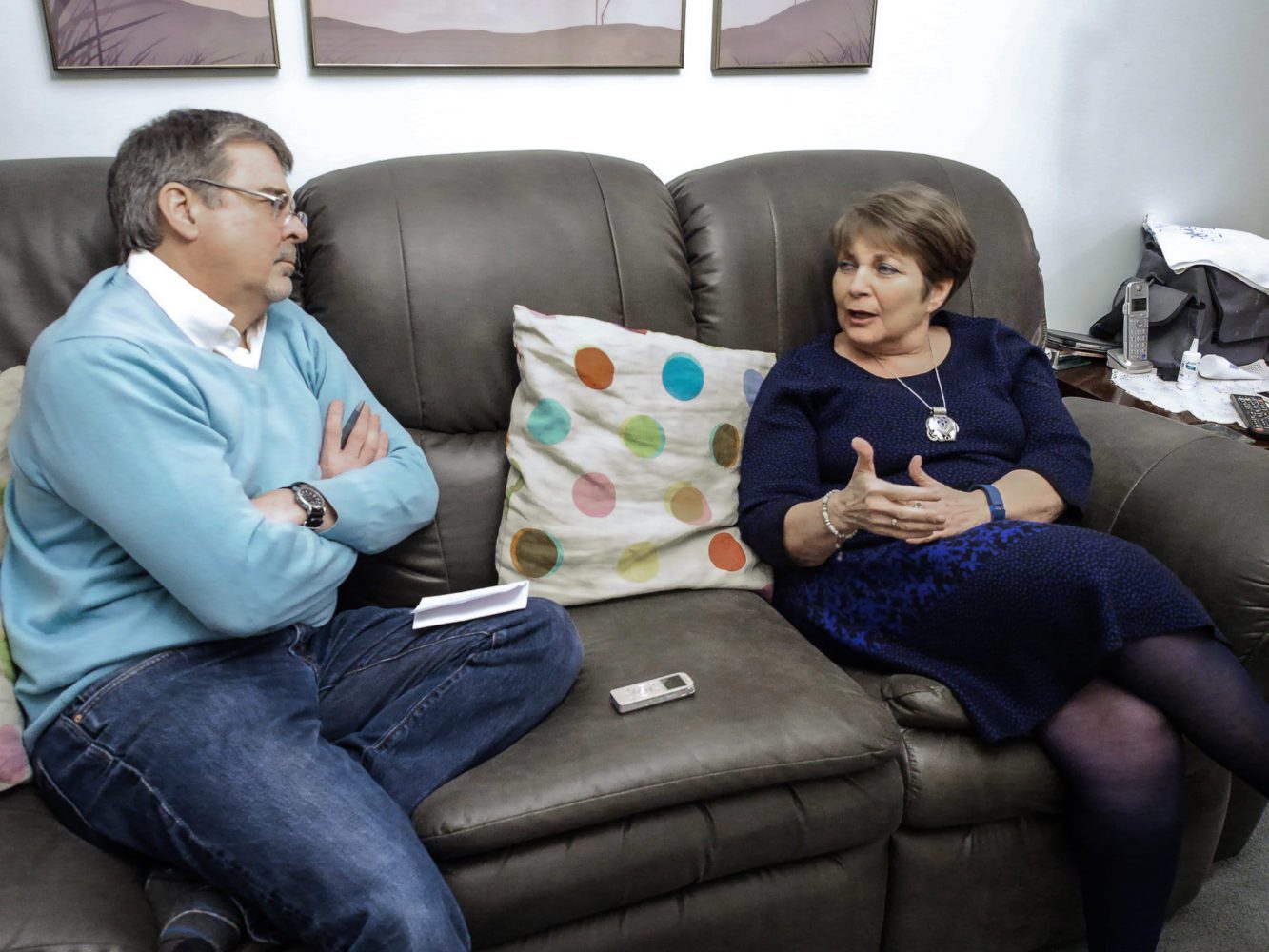
“Do you observe the residents’ health deteriorating?”
“Yes. A resident may usually come downstairs, walk by my desk and have a little chit chat. But all of a sudden that chit chat doesn’t quite make sense. Or somebody who is always well groomed, all of a sudden has hair that is a little dishevelled. Or they look at you and say, ‘Where is it exactly that I live?’” I find that when residents’ dementia increases, they tend to stay in the lobby more because they need that interaction. They don’t know what to do upstairs in their own apartments.
Sometimes it happens very quickly. That’s the hardest. And sometimes it’s a very slow, gradual decline.
“But you can pick it out. Even just by their mannerisms. It’s very subtle sometimes.”
“I am very observant. My kids always tell me, ‘You see way too much!’ I say, ‘Yeah, but you know what? It’s good for my job that I see way too much!’”
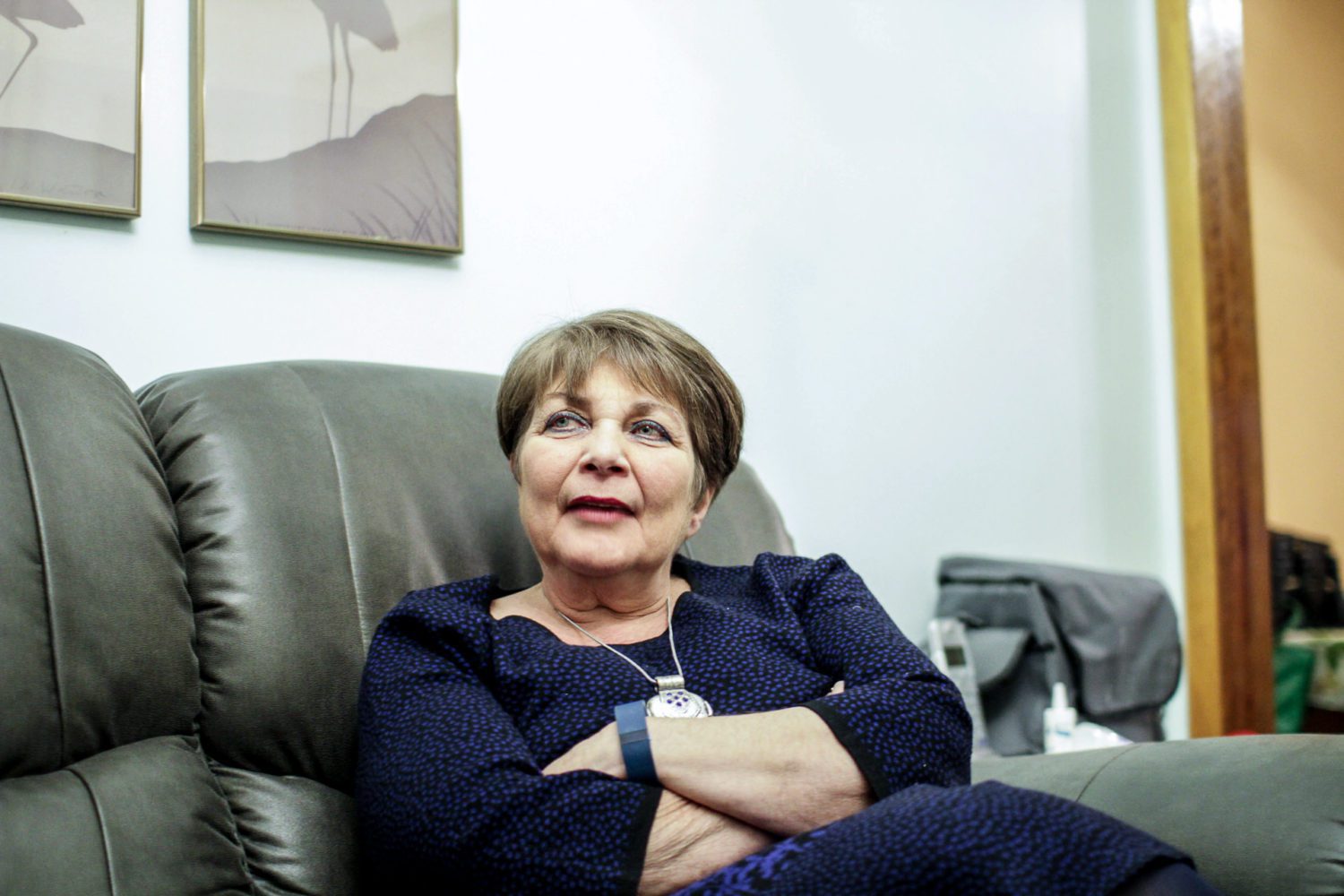
“The youngest and the oldest are the most vulnerable groups in our society and sometimes I don’t think we take care of them enough. If I see a Wheel-Trans guy who’s being rude, I will say, ‘Excuse me! That’s not how you talk!’ Maybe it’s my Italian background. You respect your elders. Sometimes taxi drivers come in and yell for the resident. Why do they have to yell? I think that’s so disrespectful.”
“So, I kind of put them in their place. Gently. Nicely. Some take it well. Some don’t take it well at all. But the ones that don’t take it well, I don’t really care. Maybe they will think about it next time.”
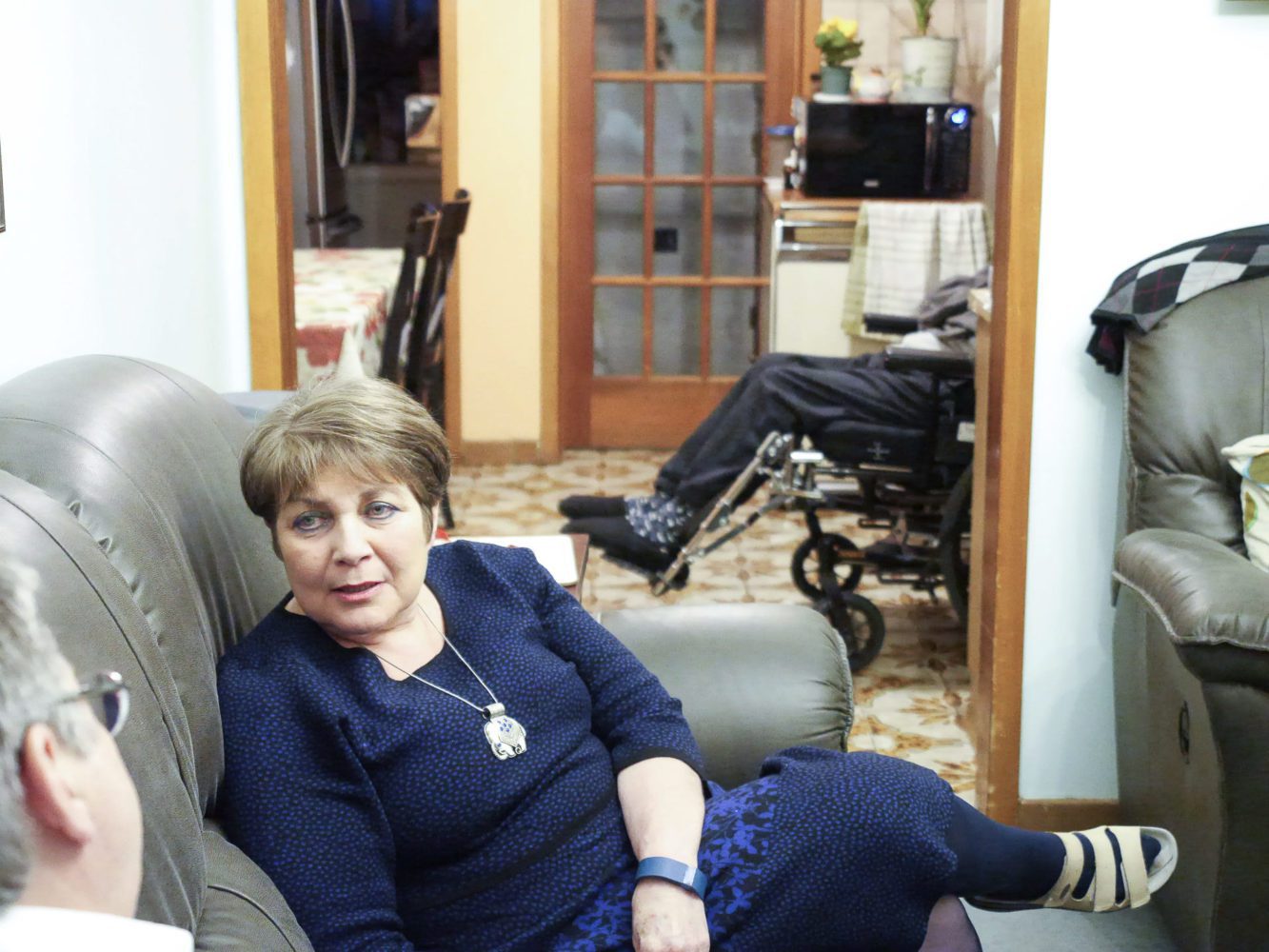
“Your parents live at home with you, and your father has dementia. How do you manage?”
“I am lucky. My daughter who was away for a year and a half has come back home and she helps me. But it is challenging, I am not going to lie. Because I experience it at home, it becomes even more personal when I see it at work. It can become overwhelming.”
“Do you tell residents at work that your dad’s got dementia?”
“Absolutely! Because people know that I take care of my dad, they will have a very honest and open conversation with me. Sometimes there’s lots of crying. I think one of the reasons we have a good relationship is that I tell them about my home life. I think they treat me as a friend because they know a little bit about me. If they didn’t know anything about me, how are they going to trust me?”
“I think my home life makes me better at my job, because when people are having trouble deciding whether to place their parents with us, I am struggling with that myself. I struggle with it every day. We want to keep my dad at home forever, but we do have an application in because we don’t know what life will bring.”
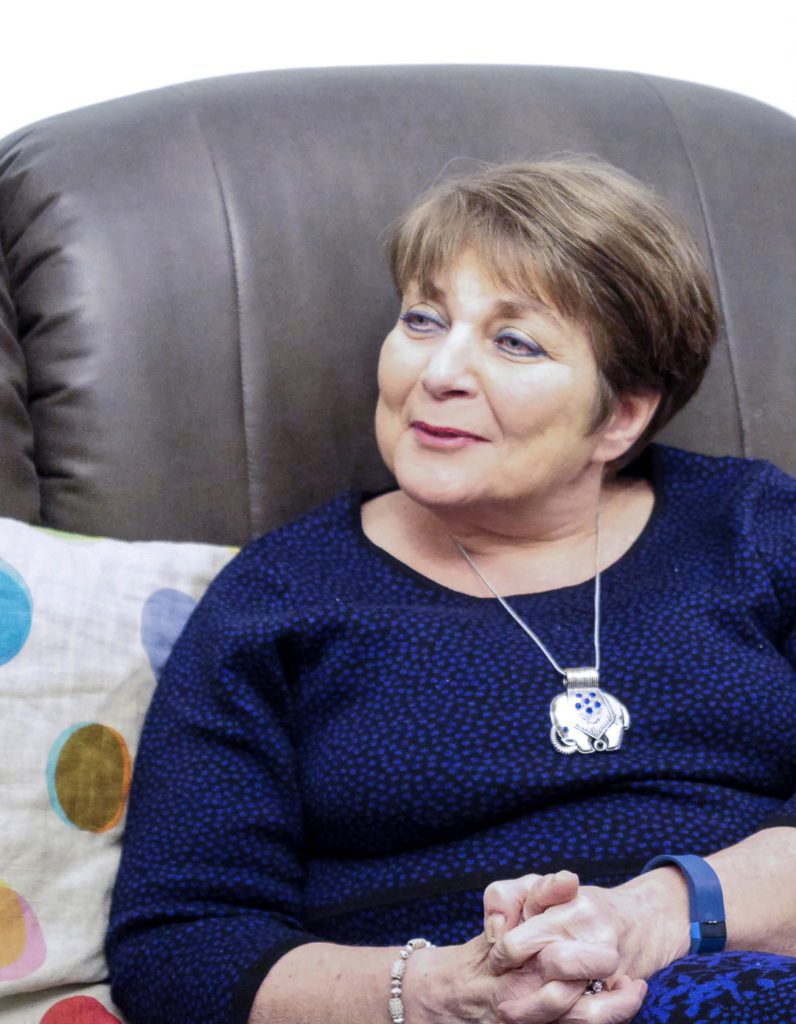
“When residents move onto our floor with the most intensive nursing care, after that there’s no more moving on. That is difficult for the residents and for their families.”
“I understand that because I am in the same boat.”
I understand that you don’t want to let go of that person – all the stories, the hopes and dreams, and the independence and all of life.
“But, sometimes people can wait too long. If you are a resident with dementia and live in your own apartment, it can be a very lonely life. They don’t have anything to occupy their time and they lose interest. When they go to the floor with more intensive nursing, they are no longer isolated in their apartments. There’s a nurse who will come in, advocates will come in, there’s much more interaction. They may forget to eat if they are living alone in their apartment; they are not going to forget to eat on that floor. We have a beautiful big kitchen and they eat altogether. So, there’s companionship, there’s things to do. Before people move to the intensive nursing floor, there’s all this apprehension, this sadness. But it doesn’t necessarily have to be sad because sometimes they blossom.”
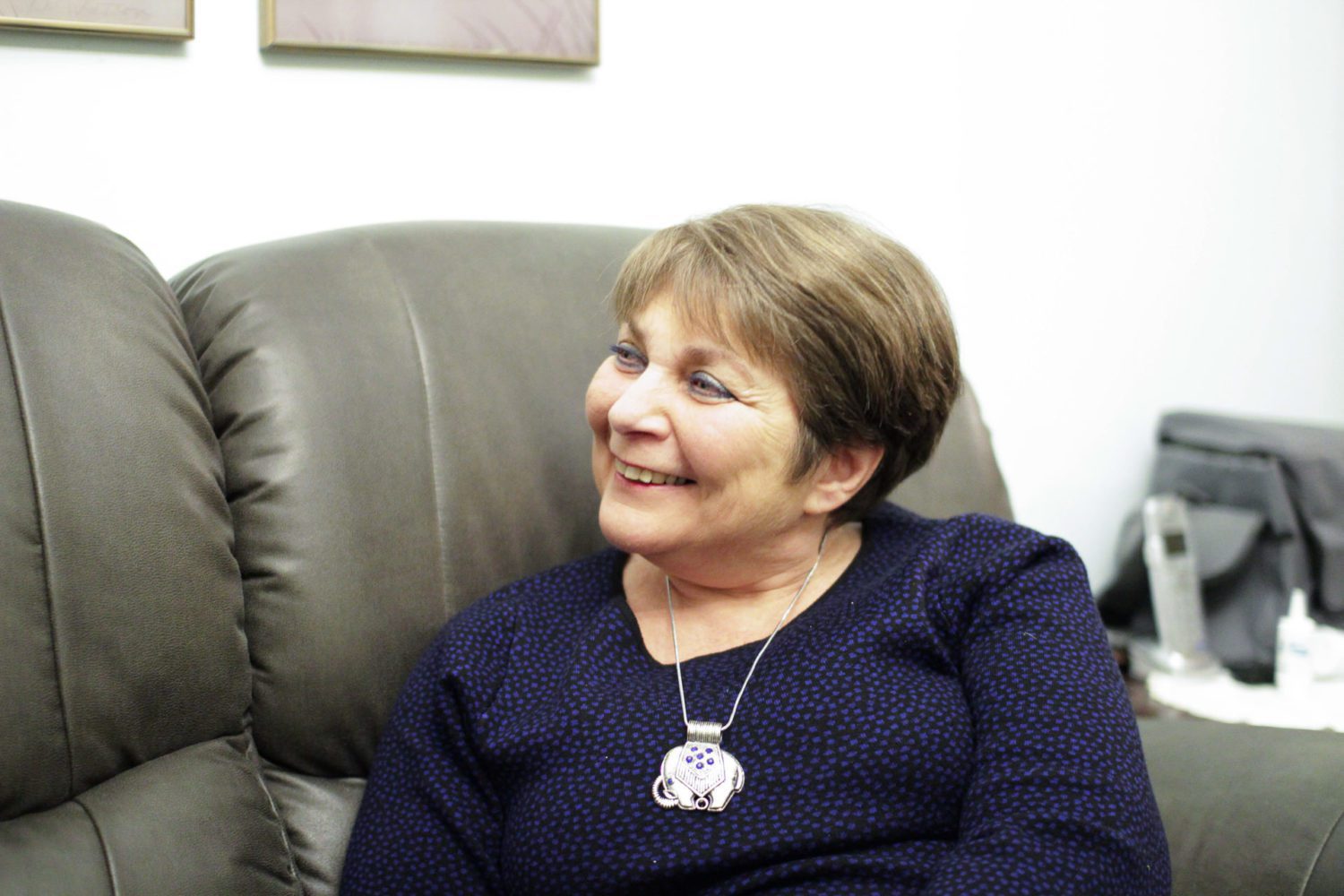
“Tell me what you like the most about your job.”
“I like the residents the most. They make my day. I learn something every day.”
“One resident – I knew her story by heart. She had dementia and every day she said, ‘Maria, I grew up in Winnipeg. I was a preacher’s daughter. I wanted to see the world, but my dad wouldn’t let me. So, I joined the army, and by joining the army I saw the world.’”
That’s what I like. I like to hear what life was like in the 1920s in Toronto. It’s a very rich community and seniors have a lot to offer.
“The saddest part about my job is when you have shared so many stories back and forth, and then the residents are not able to tell me their stories anymore.”


The comments section is closed.